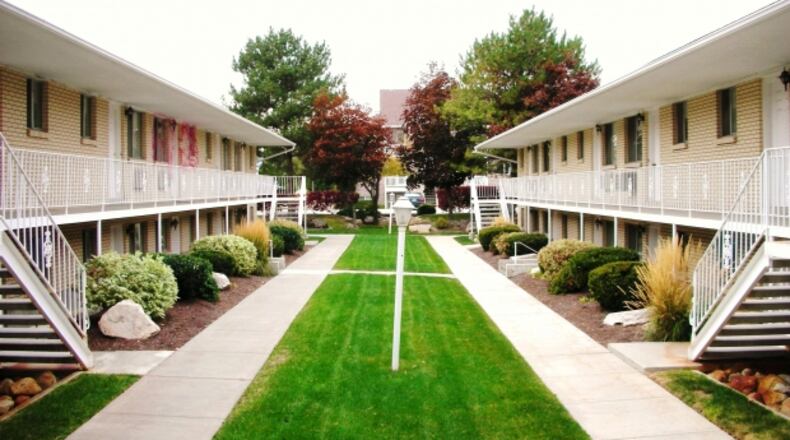Stephanie Williams wept within seconds of addressing Cobb County commissioners Tuesday morning. She said had just received a letter from one of the five nonprofits charged with dispersing $22.8 million in federal assistance for renters facing eviction because of COVID-19.
The letter, Williams said, informed her that required documents were missing from her application for the help.
Williams and her two children are now facing eviction.
“Anybody could be in this situation,” she said. “I went to college. I work at the hospital. I make the money to be able to afford my rent ... I’m speaking on behalf of any single mother in here. Please help us. Because we really need it.”
In February, commissioners approved accepting the Federal Emergency Rental Assistance relief grants out of a second stimulus package passed by Congress and signed into law in December by then President Donald Trump.
But public officials across the country have struggled to assemble an apparatus to get the money to those it is supposed to help.
The money can go towards rent, utilities and other housing related expenses. But county officials say that the requirements for distributing the funds are stricter than those under the previous CARES Act.
It took Cobb officials two months for nonprofits to screen applicants to ensure they met the criteria.
On April 1, Cobb began accepting applications for the so-called ERA, just 90 days prior to the expiration of the federal moratorium on evictions for renters facing COVID-19 related financial hardships.
The county has only spent $3.5 million of its portion of the Emergency Rental Relief funds in the past two months to help people stay in their homes. As of this week, there are 1,600 eviction cases pending in magistrate court Chief Magistrate of Cobb County Judge Brendan F. Murphy. Not all are COVID related.
The backlog is expected to increase as the moratorium’s end nears on June 30.
Differing local, state, and federal deadlines for when the money must be spent have added to the time crunch.
Melanie Kagan, CEO of The Center for Family Resources, one of Cobb’s four rental assistance providers, told The Atlanta Journal-Constitution that the application requirements for the ERA funds are much more arduous than under the CARES Act. Applicants must locate extensive records to verify prior income, income loss due to COVID and documents proving that each claimed household member on an application lives in the rental.
Under the program’s guidelines, residents must qualify for unemployment, have financial hardships related to the pandemic; face a risk of being homeless and have an income that is at or below 80% of the area household level — $77,932 for Cobb County in 2019, according to the U.S. Census Bureau.
The assistance isn’t capped at a dollar amount, Kagan noted, as was the CAREs rental assistance. However, each household is only eligible for 12 months worth of rent.
“This is more money in preventative care than Cobb has seen in 15 years,” Kagan said.
Nevertheless, some will still exhaust the ERA benefits, Kagan said.
She said that the she expects the amount of money spent out of the $22.8 million to quickly accelerate now that the system is in place for getting it in the right hands.
The CDC’s moratorium has not impacted evictions unrelated to COVID, and not all courts have honored it to the same extent. Murphy, Cobb’s Chief Magistrate Judge, said he has taken the most cautious approach possible.
In many cases, renters facing evictions haven’t learned that they are eligible for the federal relief until they and their landlord appear in his court, Murphy said, despite the court sending out notices prior to the hearing.
Of the $3.5 million in ERA spent so far, $500,000 of it has come out of agreements worked out in Murphy’s court at the last minute.
“We are all working hard to get the word out,” the judge said.
Williams, the single mother of two facing eviction who works as an X-ray technician, told the AJC that her hours were reduced because of the pandemic, causing her to fall behind on her rent.
After Tuesday’s meeting, Williams said that someone from the commissioners’ office contacted her and helped put her in touch with the right people from her employer and from the nonprofit helping her with the application. She quickly learned what she was missing: a letter from her human resources department stating the dates her hours were reduced.
She said she was relieved, but still frustrated.
“It’s just been ... I don’t know,” Williams said. “I’m just trying to figure all this out.”
About the Author




